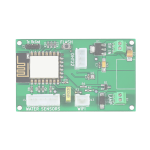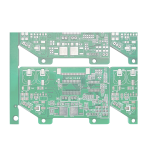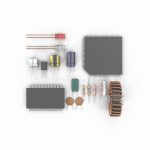PCB FOR AUTOMOTIVE
automotive industry PCBA
Printed Circuit Boards (PCBs) play a crucial role in the automotive industry, providing the necessary platform for the electronic components that control various functions in vehicles.
Here are some common PCBA products used in the automotive sector:
- Engine Control Units (ECUs)
- Transmission Control Modules (TCMs)
- Anti-lock Braking System (ABS) Modules
- Airbag Control Modules
- Infotainment Systems
- Instrument Clusters
- Body Control Modules (BCMs)
- Powertrain Control Modules (PCMs)
- Keyless Entry Systems
- Advanced Driver Assistance Systems (ADAS)
- Battery Management Systems (BMS)
- Charging Control Modules
- Climate Control Systems
- Tire Pressure Monitoring Systems (TPMS)
- Electronic Power Steering (EPS) Systems
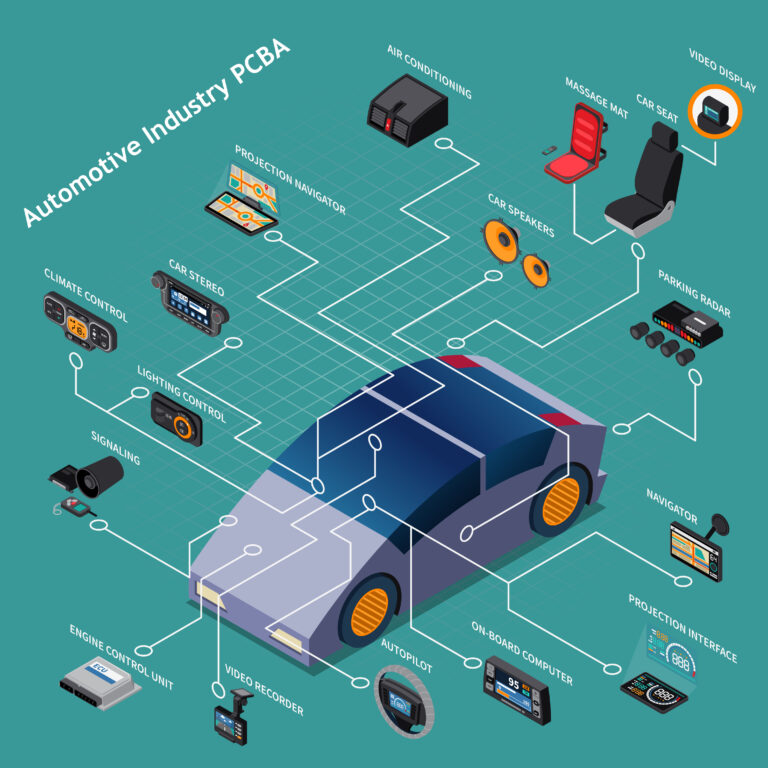
Various types of printed circuit boards (PCBs) are used in automot:
Single-Layer PCBs:
- Sensors
- Basic electronic controls
Double-Layer PCBs:
- control modules
- instrument clusters.
Multi-Layer PCBs:
- These boards are suitable for complex electronic systems where space is limited.
- Advanced control modules
- Engine management systems
- Infotainment systems
Rigid PCBs:
- ECUs
- Sensors
- Power distribution systems
Flex PCBs:
Flexible PCBs are made from flexible materials, allowing them to bend or conform to the shape of the components or the vehicle itself.
High-Frequency PCBs:
- Radar
- Communication systems in advanced driver assistance systems (ADAS).
Metal Core PCBs:
- LED lighting systems
- Power electronics
Ceramic PCBs:
- Power modules and components in the engine compartment.
Some key considerations
Reliability and Durability
Automotive environments can be harsh, with exposure to temperature variations, vibrations, and moisture. PCBs for automotive use must be designed to withstand these conditions and maintain reliable performance over the vehicle’s lifespan.
Size and Weight Constraints
Automotive electronics often have space and weight limitations. PCB designs should be compact and lightweight while still accommodating the required functionality. Multi-layer PCBs necessary to achieve the desired circuit density.
Material Selection
The choice of PCB material is crucial. High-temperature, flame-retardant materials with good thermal conductivity are often preferred. Ceramic materials might be used in specific applications where high reliability is essential.
Lead-Free and RoHS Compliance
Automotive electronics must adhere to environmental regulations, such as the Restriction of Hazardous Substances (RoHS). Lead-free soldering is typically required for compliance.
Testing and Quality Control
Rigorous testing procedures should be in place to ensure the reliability of automotive PCBs. Automated optical inspection (AOI) and in-circuit testing (ICT) are common methods used for quality control.
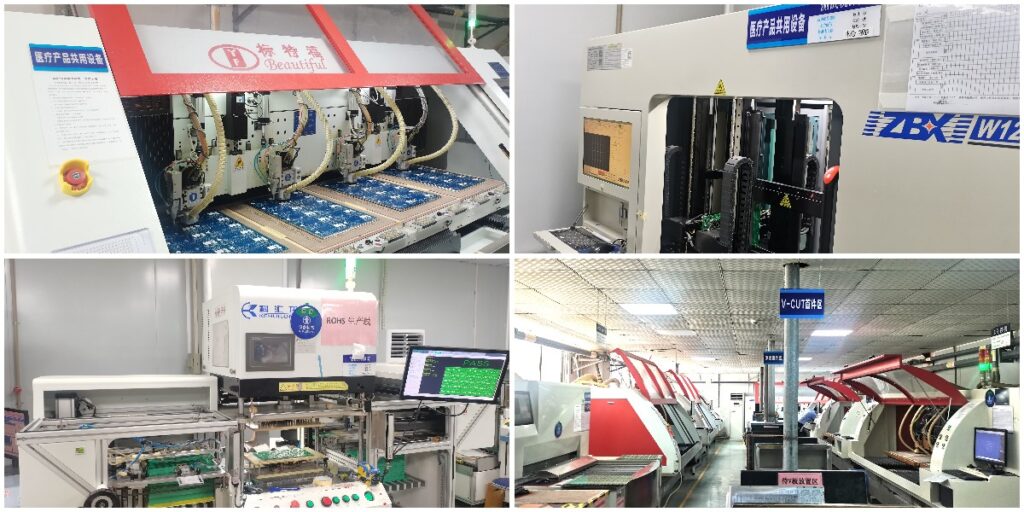
Designing PCBs for automotive applications requires a thorough understanding of the specific requirements and challenges associated with the automotive industry. Collaboration with experienced PCB manufacturers and adherence to industry standards are essential to ensure the success of automotive electronic systems.
Related Products
About Bd Star (shenzhen) Industry Co., Ltd.
Various circuit board types such as rigid PCB, flexible PCB, rigid-flex PCB, copper PCB and high density interconnect PCB are all available.
We have an experienced engineer team that always available to discuss your requirements.
- Complete certificates, professional ISO management system.
- Advanced production equipment, strict quality inspection process
- Wide range of pcb's, mass production and fast delivery.
Welcome to ask us if your have any related questions.


